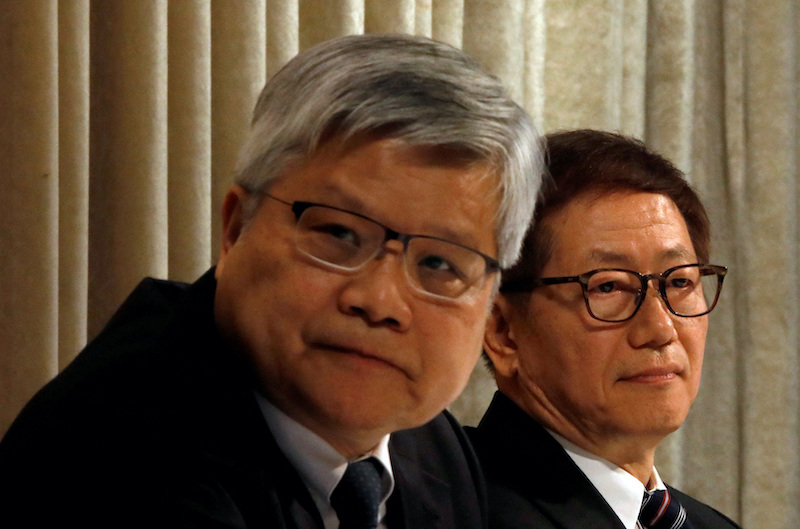Taiwan’s major institutional investors are holding or fortifying positions in their long-preferred asset class of fixed-income this year to reduce the economic shocks from Covid-19 containment measures around the world.
Insurers in Taiwan invested more in bonds than any other overseas asset class in the first quarter, while banks had come off a 5% exposure increase in 2019 with no sign of reversing it this year to date, analysts say.
Among the larger government investors, the NT$2.4 trillion ($80 million) Labor Pension Fund was keeping a disclosed NT$625 billion in bonds at the end of March, up from about NT$620 billion at the end of 2019, monthly investment activity reports show. The NT$939 billion Labor Retirement Fund had NT$224.5 billion in bonds at the end of the quarter, roughly the same as in December.
Taiwan’s NT$537.2 billion Public Service Pension Fund added about NT$3.2 billion to in-house managed bonds between December and the end of March.
While institutions in other parts of the world are picking stocks as well as bonds this year – being choosy about both – Taiwanese asset owners required no rethink as the deadly disease started tearing through financial markets in March.
Stable income
They already invest heavily in bonds compared to their peers offshore, analysts say. Bonds represent stable income and guaranteed cash flow, especially among insurers.
“Life insurers always rely on fixed income, so our’s isn’t too much related to the disease outbreak,” Cathay Financial Holdings spokesman Lin Chao-ting told an online investor conference May 19, speaking for Cathay Life Insurance.
Cathay Life insurance enlarged its domestic bond investment by NT$11 billion in the first quarter this year, according to a financial report released in May. Cross-town rival Fubon Life Insurance added NT$166.5 billion to overseas bonds over the quarter while shedding domestic bond exposure, according to a quarterly financial report.
Fubon Life’s parent company cited yield spreads in March as a reason to buy bonds.
Taiwanese insurers are maintaining their highest-ever overseas investments in bonds this year to date at rates of 50-60% of total investments, said Kelvin Kwok, a Hong Kong-based analyst with Moody’s Investors Service.
Some insurers have downgraded the quality of bonds slightly, for example from “A” range to high “BBB” range, to maintain yields as a protection against market fallout from Covid-19, Kwok said. “Bonds still offer stable coupon income,” he said.
In April, Taiwan-based China Life Insurance announced a particularly large investment of NT$1 billion in bonds issued by Asia Cement Corp., which had reported a March sales revenue increase. The cement firm does much of its business in China, which has largely gotten over Covid-19 and reopened after shutdowns.
Taiwanese banks were investing NT$13.3 trillion in fixed income instruments at the end of last year, up 5% over the year as a whole, according to Fitch Ratings data.
Government and offshore bonds
About two-thirds of that went to government bonds, with the rest in private sector onshore and offshore bond mostly of investment grade, Huang said.
“We expect no material change in investment position and mix during the Covid-19 pandemic,” said Cherry Huang, Taiwan banks analyst with Fitch Ratings. Taiwan bond prices, she added, “were generally stable during the pandemic.”
Spokespeople for the Bureau of Labor Funds, which operates the pension and retirement schemes, do not link year-to-date fixed income shifts to protection from market shocks but do not rule out a connection.
Outside Taiwan, market-wary institutions are going for certain stocks and specific types of fixed income.
UBS, for example, said in a March 31 commentary it was long on “real” fixed-income yields “as protection against further deterioration in risk appetite and as central banks do whatever is needed to ease financial conditions.” The Swiss investment bank says too it’s “over-weighting” equity markets in Asia, where it believes Covid-19 has passed its worst.
Triodos Investment Management of the Netherlands, to name another example offshore, said April 9 it prefers “credits with high-quality names” if picking bonds.
Stocks work if “tilted to quality companies with financially strong balance sheets,” the management firm said in a research note.
By Ralph Jennings in Taipei
ALSO SEE: Asia firms turn to making medical gear
























